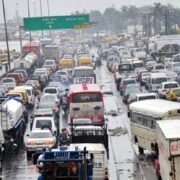Weak agriculture, insecurity, and import waivers blamed as experts urge stronger local investment and technology adoption
Nigeria’s food and beverage imports surged by 44.48 per cent in the first half of 2025, reaching ₦677.3bn, up from ₦468.76bn recorded in the same period of 2024, according to data from the National Bureau of Statistics (NBS).
The rise, driven largely by household consumption of primary food and beverage products, has sparked fresh calls for the Federal Government to boost local production capacity and curb dependence on foreign goods.
While imports of primary food and beverages for household use jumped sharply, processed food and beverage imports for household consumption fell slightly by 1.85 per cent — from ₦699.58bn to ₦686.81bn within the same period.
However, primary food and beverage imports for industrial use rose by 1.37 per cent to ₦982.49bn, while processed imports for industrial use increased by 7.28 per cent, from ₦984.16bn to ₦1.06tn.
‘People Trust Imported Products More’ — LCCI Agric Group
The Chairman of the Lagos Chamber of Commerce and Industry (LCCI) Agricultural and Allied Group, Tunde Banjoko, said the import figures highlight a deep trust deficit in locally produced goods.
“From this data, what one can infer is that people trust the quality and integrity of imported raw materials, foodstuff, and beverages more than what is being produced locally,” he said.
Banjoko linked the situation to poor quality control, inadequate funding, and weak agricultural infrastructure, especially storage facilities.
“Our seedlings, use of chemicals, and production processes are still affecting output. We also lack proper storage systems and functioning commodity boards,” he added.
He urged the government to create guaranteed offtake systems for farmers and improve funding for agribusinesses. “If we can make local production scalable and competitive through funding and technology, these numbers will drop, and pressure on foreign exchange will ease,” Banjoko said.
Insecurity and Low Tech Adoption Crippling Agriculture
The President of the Association of Small Business Owners of Nigeria, Dr. Femi Egbesola, blamed the persistent insecurity and outdated farming methods for Nigeria’s heavy reliance on imports.
“Many farmers have abandoned their farmlands due to insecurity. When farms are empty, manufacturers have no local inputs to work with,” he noted.
Egbesola compared Nigeria’s low productivity to developed countries. “In Nigeria, producing 10 tons of cassava may require 30 acres, but in the Netherlands, the same output comes from just three plots. That shows how far behind we are in technology use,” he said.
He called for aggressive investment in mechanisation, farmer training, and tech integration in agriculture, noting that the current gaps present “huge opportunities for local investors willing to look inward.”
Import Waivers, Wheat Demand Driving the Spike
The Director of the Centre for the Promotion of Private Enterprise, Dr. Muda Yusuf, attributed part of the import surge to increased demand for wheat-based foods and the Federal Government’s 180-day import waivers on maize and brown rice in 2024.
“The biggest driver of food imports is the wheat value chain — bread, pastries, noodles — which are staples in Nigerian households,” Yusuf said.
He also noted that currency depreciation had inflated the naira value of imports even where quantities remained constant.
Rising Imports Don’t Mean Rising Income — NASME
The Director-General of the Nigerian Association of Small and Medium Enterprises (NASME), Eke Ubiji, warned that the import spike doesn’t reflect improved living standards.
“I doubt these numbers mean consumers’ purchasing power has increased. Many have simply adjusted to smaller, cheaper product sizes,” he said.
According to him, inflation has forced many households to opt for cheaper foods like instant noodles, not because they prefer them, but because that’s all they can afford.
Experts Call for Coordinated Policy Action
Stakeholders agreed that reducing Nigeria’s dependency on food imports will require coordinated government action across agriculture, manufacturing, and trade.
They called for improved access to finance, stronger value chains, better storage infrastructure, and a national strategy to make local production more competitive.
Banjoko summed it up:
“If we can make local production sustainable through funding, technology, and storage, Nigeria can cut imports and ease pressure on foreign exchange.”
Background: Nigeria’s Food Security Battle
Nigeria has long struggled to achieve food security amid inflation, import restrictions, and insecurity. The Bola Tinubu administration declared a national emergency on food security in 2024, temporarily relaxing import duties on key staples to ease food prices.
While the Federal Government says the move has slowed food inflation — which stood at 16.87 per cent in September 2025 compared to 37.77 per cent a year earlier — local producers argue that the policy undermines self-sufficiency and discourages domestic investment.
With agricultural imports hitting ₦2.22tn in the first half of 2025, experts warn that without stronger policy consistency and investment in production, Nigeria’s food dependence may deepen.




















Comments